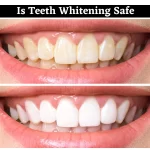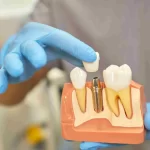Everyone goes through stress at some point of their life, some more than others. Most of us are aware of what this does to our bodies, i.e. depression and anxiety disorders, panic attacks and insomnia. But stress and oral health are a completely new discovery for most people. Sadly, our mouths are as vulnerable to stress as our minds and bodies, and significant link has been found between stress and oral health. The good news is this connection helps us better understand what part depression and anxiety have in the development of dental problems, and enables us to know the following problems are the upshot of stress:
BRUXISM:
This is the state of grinding teeth in your sleep which is caused by stress. If not treated promptly, this can cause tooth damage as the enamel eventually erodes, and jaw problems due to continual strain.
DRY MOUTH:
With high stress levels, saliva production is disrupted, causing chronic dryness. Loss of saliva results in increased bacterial and acid build-up, resulting in damaged enamel leading to tooth decay and cavities.
CANKER SORES:
This is an ulcerous condition sometimes caused by stress. Although harmless, these small sores can be quite painful.
BURNING MOUTH SYNDROME:
Psychological problems are known to cause burning sensation on the tongue, palate, gums or lips, resulting in an overall irritated mouth.
COLD SORES:
Otherwise known as fever blisters, cold sores are caused by the herpes simplex virus. They are filled with fluid, and mostly appear under your nose, around the chin or lips.
LICHEN PLANUS:
This condition involves white lines, sores and ulcers in the oral cavity, and is a reaction to viral infections caused by stress.
GUM DISEASE:
Long-term stress is known to affect the immune system, increasing the chances of infections, like periodontal disease and gingivitis.
These are some ways in which stress affects your oral health. So, it won’t be wrong to say that keeping stress at bay is the key to good dental and oral health.
How Stress Can Affect Your Teeth
Everyone goes through stress at some point of their life, some more than others. Most of us are aware of what this does to our bodies, i.e. depression and anxiety disorders, panic attacks and insomnia. But stress and oral health are a completely new discovery for most people. Sadly, our mouths are as vulnerable to stress as our minds and bodies, and significant link has been found between stress and oral health. The good news is this connection helps us better understand what part depression and anxiety have in the development of dental problems, and enables us to know the following problems are the upshot of stress:
BRUXISM:
This is the state of grinding teeth in your sleep which is caused by stress. If not treated promptly, this can cause tooth damage as the enamel eventually erodes, and jaw problems due to continual strain.
DRY MOUTH:
With high stress levels, saliva production is disrupted, causing chronic dryness. Loss of saliva results in increased bacterial and acid build-up, resulting in damaged enamel leading to tooth decay and cavities.
CANKER SORES:
This is an ulcerous condition sometimes caused by stress. Although harmless, these small sores can be quite painful.
BURNING MOUTH SYNDROME:
Psychological problems are known to cause burning sensation on the tongue, palate, gums or lips, resulting in an overall irritated mouth.
COLD SORES:
Otherwise known as fever blisters, cold sores are caused by the herpes simplex virus. They are filled with fluid, and mostly appear under your nose, around the chin or lips.
LICHEN PLANUS:
This condition involves white lines, sores and ulcers in the oral cavity, and is a reaction to viral infections caused by stress.
GUM DISEASE:
Long-term stress is known to affect the immune system, increasing the chances of infections, like periodontal disease and gingivitis.
These are some ways in which stress affects your oral health. So, it won’t be wrong to say that keeping stress at bay is the key to good dental and oral health.

















